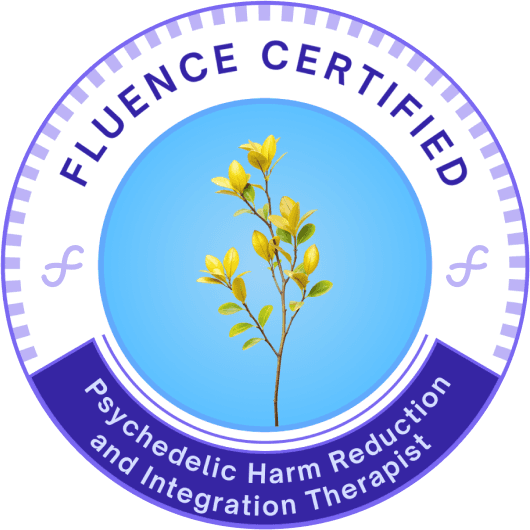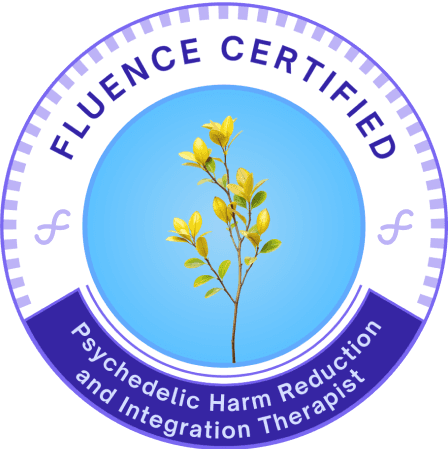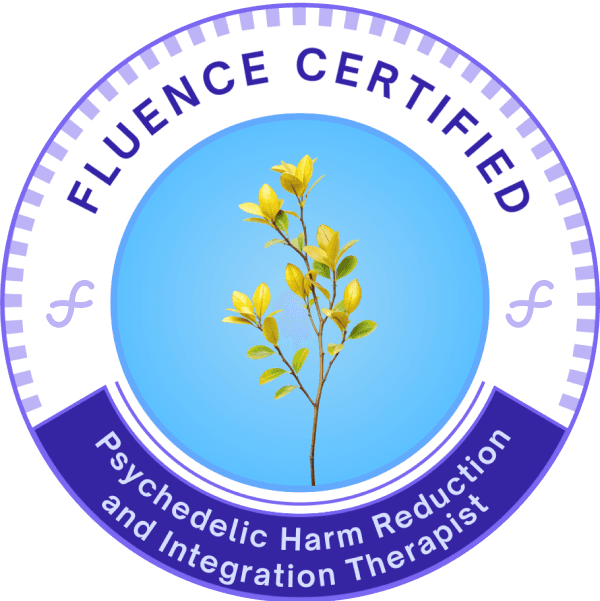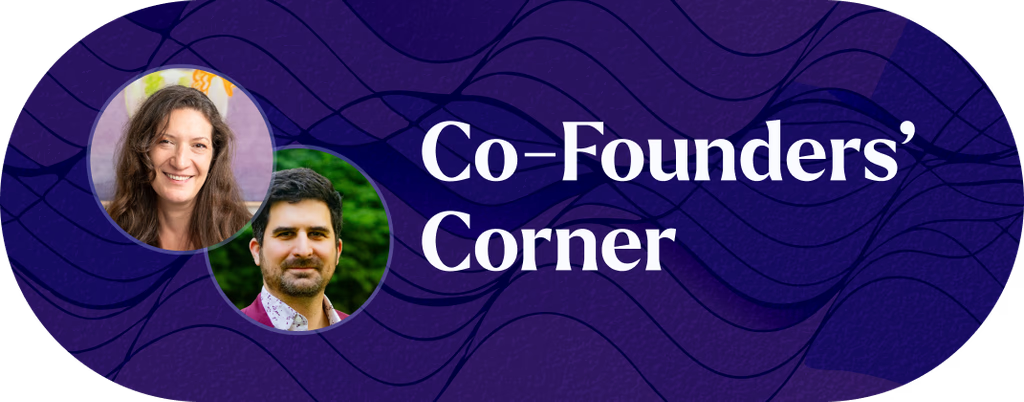News
News
Stay informed with the latest updates, insights, and announcements from our community and industry.


TYPE
Blog
Blog
News
News
Newsletter
Newsletter
Grow your practice.
Get certified and join the Fluence Psychedelic Therapy Directory—where clients find trusted experts.
Grow your practice.
Get certified and join the Fluence Psychedelic Therapy Directory—where clients find trusted experts.
Grow your practice.
Get certified and join the Fluence Psychedelic Therapy Directory—where clients find trusted experts.
What students have to say about our programs...
I really appreciate Fluence. The trainings and coursework, the literature shared, the community, self-development and insightful explorations have strengthened me as a professional and given such a sense of competence in this evolving space.

Amy Johnson
LCSW
I've been more than thrilled about my experience with Fluence thus far. I am a ketamine-assisted psychotherapist and
continue to learn more information and modalities to incorporate into my practice, from both the instructors and
fellow students.

LAURA HUTCHINS,
LCMHC, LCAS, KAP Consulting
My entire experience with Fluence has been exceptional. The instructors are giants in the psychedelic field, many are active in clinical research and you will see their names in scientific publications.

Stephanie Barss,
FNP, PMHNP, Psilocybin-Assisted Therapy
Certificate Program Advisor
The trainers at Fluence are what continually confirm that I am in the right place. The reverence and honor with which they approach their work is so evident. I have felt a sense of safety
at Fluence that is not present in other organizations I have
trained with or researched, and it is the trainers who create that safety.

Andrea Bigenho,
LPC specialist in Psychedelic Integration
What students have to say about our programs...
I really appreciate Fluence. The trainings and coursework, the literature shared, the community, self-development and insightful explorations have strengthened me as a professional and given such a sense of competence in this evolving space.

Amy Johnson,
LCSW
What are students say…
I really appreciate Fluence. The trainings and coursework, the literature shared, the community, self-development and insightful explorations have strengthened me as a professional and given such a sense of competence in this evolving space.

Amy Johnson,
LCSW

Enhance your practice with a Professional Certification in Psychedelic Harm Reduction and Integration Therapy.

Enhance your practice with a Professional Certification in Psychedelic Harm Reduction and Integration Therapy.

Enhance your practice with a Professional Certification in Psychedelic Harm Reduction and Integration Therapy.
How do you earn your Professional Certificate?
Step 1
Complete the Essentials course to learn the fundamentals of psychedelic therapy and unlock access to the Specialty courses.

Core Curriculum
Essentials of Psychedelic Therapy
Learn More
Step 2
Complete your chosen Specialty course to gain a Fluence Professional Certificate.
Step 3
Join a robust directory of psychedelic therapist to become discoverable by clients near you and other industry leaders.

Directory Listing
Earn and display a badge for every professional certificate you complete
Learn More
How do you earn your Professional Certificate?
Step 1
Complete the Essentials course to learn the fundamentals of psychedelic therapy and unlock access to the Specialty courses.

Core Curriculum
Essentials of Psychedelic Therapy
Learn More
Complete your chosen Specialty course to gain a Fluence Professional Certificate.
Step 2
Join a robust directory of psychedelic therapist to become discoverable by clients near you and other industry leaders.
Step 3

Directory Listing
Earn and display a badge for every professional certificate you complete
Learn More
How do you earn your Professional Certificate?
Step 1
Complete the Essentials course to learn the fundamentals of psychedelic therapy and unlock access to the Specialty courses.

Core Curriculum
Essentials : Psychedelic Therapy
Learn More
Step 2
Complete your chosen Specialty course to gain a Fluence Professional Certificate.
Step 3
Join a robust directory of psychedelic therapist to become discoverable by clients near you and other industry leaders.

Authentic Badges from Fluence
Earn and display a badge for every professional certificate you complete
Learn More
Not sure where to start?
All professional certificates start with...

Course
Essentials of Psychedelic Therapy
6 Weeks
Live-Online
22 Hours CE Credits
Kickstart your psychedelic therapy career with essential knowledge and skills – your first step toward earning a Professional Certificate from Fluence!
Buy the Professional Certificate for a 20% discount!
Not sure where to start?
All professional certificates start with...

Course
Essentials of Psychedelic Therapy
6 Weeks
Live-Online
22 Hours CE Credits
Kickstart your psychedelic therapy career with essential knowledge and skills – your first step toward earning a Professional Certificate from Fluence!
Buy the Professional Certificate for a 20% discount!
Not sure where to start?
All professional certificates start with...

Course
Essentials of Psychedelic Therapy
6 Weeks
Live-Online
22 Hours CE Credits
Kickstart your psychedelic therapy career with essential knowledge and skills – your first step toward earning a Professional Certificate from Fluence!
Buy the Professional Certificate for a 20% discount!
Have questions? Ask our experts.
Have questions? Ask our experts.
Have questions?
Ask our experts.
Subscribe to our newsletter!


Professional Certificates

Subscribe to our newsletter!


Professional Certificates

Subscribe to our newsletter!


Professional Certificates







